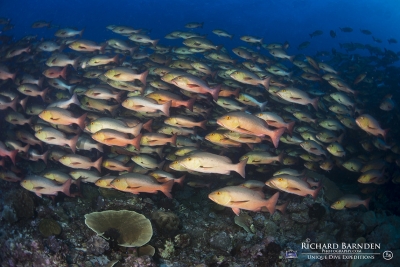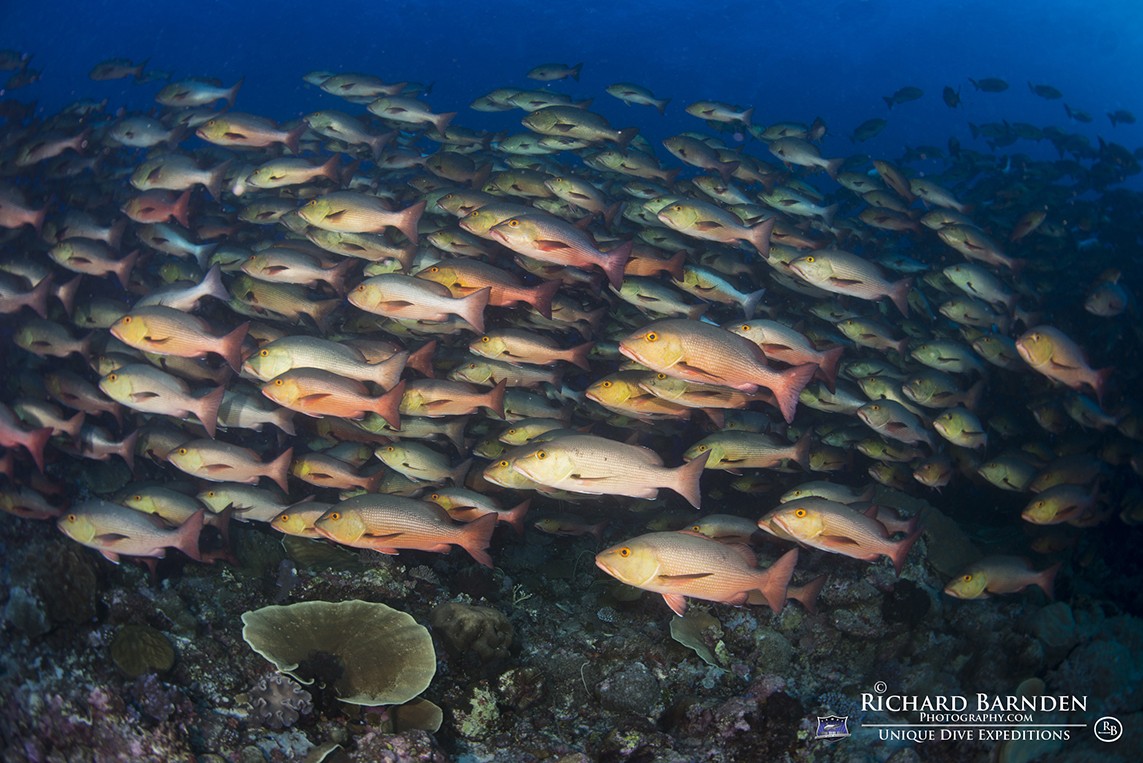 At the recent International Coral Reef Initiative (ICRI) meeting in Okinawa, Japan, Science and Conservation of Fish Aggregations (SCRFA) and the ICRI Ad Hoc Committee of Reef Associated Fisheries launched the most up to date information with a report on how the world's fish spawning aggregations are faring.
At the recent International Coral Reef Initiative (ICRI) meeting in Okinawa, Japan, Science and Conservation of Fish Aggregations (SCRFA) and the ICRI Ad Hoc Committee of Reef Associated Fisheries launched the most up to date information with a report on how the world's fish spawning aggregations are faring.
“Spawning aggregations around the world are declining, and an alarming 4% are documented to have disappeared entirely. This is a critical issue for marine fisheries and conservation that deserves more attention on the global stage,” said Dr. Brad Erisman, Board Member of SCRFA and Assistant Professor at the University of Texas Marine Science Institute.
The report, which analyzed 888 records of fish spawning aggregations for over 200 species from 44 families in 52 countries, has revealed important information for science and management of fish aggregations and the fisheries they support. Despite the limited information available on the level of management and monitoring of these aggregations, current information suggests that only about 35% of the fish analyzed have some form of management in place such as marine protected areas or seasonal protection from fishing, and only about 25% have some form of monitoring.
The Science and Conservation of Fish Aggregations is a non-profit organization that works on fish aggregations globally, provides scientific and management information, and participate in international committees, meetings and workshops to promote responsible stewardship of fish aggregations.
The report is available at Status_Report_Worlds_Fish_Aggregations_2014.pdf
This press release contains information courtesy of Science and Conservation of Fish Aggregations.









